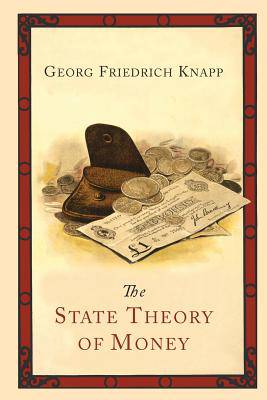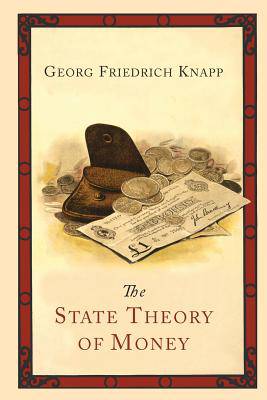
- Afhalen na 1 uur in een winkel met voorraad
- Gratis thuislevering in België vanaf € 30
- Ruim aanbod met 7 miljoen producten
- Afhalen na 1 uur in een winkel met voorraad
- Gratis thuislevering in België vanaf € 30
- Ruim aanbod met 7 miljoen producten
Zoeken
Omschrijving
2013 Reprint of 1924 Edition. Full facsimile of the original edition, not reproduced with Optical Recognition Software. Georg Friedrich Knapp (1842-1926) was a German economist who in 1895 published "The State Theory of Money," which founded the chartalist school of monetary theory, which takes the statist stance that money must have no intrinsic value and strictly be used as governmentally-issued token, i.e., fiat money. Published originally in 1905, it created a stir among academics and policy makers, with proponents and critics both arguing forcefully about it. It was written at a time when monetary matters were in a great flux. Throughout the world, countries debated the optimal metallic standard for their monetary systems. Should it be silver, gold, both in a fixed relation (bimetallism), a combination of the two (symmetalism), or should the selection of the standard be left to the market? Knapp put the debate on new ground by suggesting that there need not be a metallic standard at all. Ideas about the desirability of paper money not backed by gold or other metals had been presented before but were never able to command academic respectability.
Specificaties
Betrokkenen
- Auteur(s):
- Vertaler(s):
- Uitgeverij:
Inhoud
- Aantal bladzijden:
- 326
- Taal:
- Engels
Eigenschappen
- Productcode (EAN):
- 9781614274964
- Verschijningsdatum:
- 1/10/2013
- Uitvoering:
- Paperback
- Formaat:
- Trade paperback (VS)
- Afmetingen:
- 152 mm x 229 mm
- Gewicht:
- 480 g

Alleen bij Standaard Boekhandel
+ 49 punten op je klantenkaart van Standaard Boekhandel
Beoordelingen
We publiceren alleen reviews die voldoen aan de voorwaarden voor reviews. Bekijk onze voorwaarden voor reviews.











